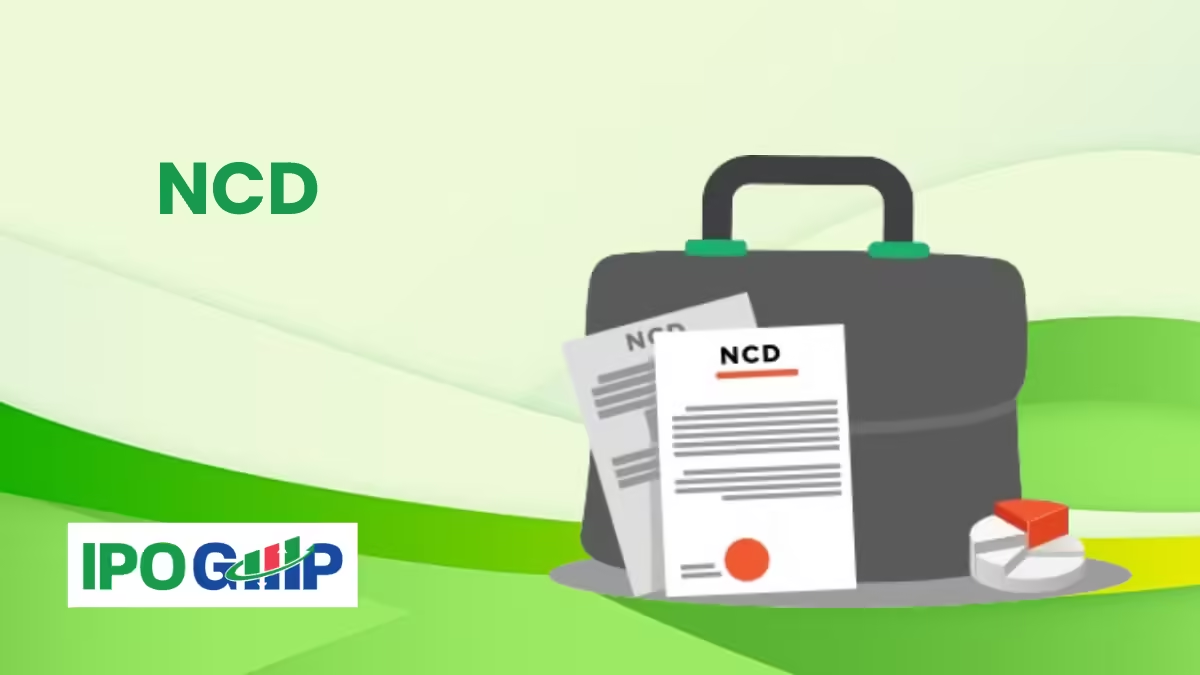In the stock market, NCD stands for Non-Convertible Debenture, a type of long-term debt instrument issued by companies to raise funds. Unlike convertible debentures, Non-convertible debentures cannot be convert into equity shares and typically offer higher interest rates.

Table of contents
What is the meaning of NCD?
Non-convertible debentures fixed-income instruments that are usually issue by high-rated companies in the form of a public issue to accumulate long-term capital appreciation. They are a type of debt instrument that cannot be convert into equity or stocks.
Active & Upcoming NCD Issue 2024
| Company | Open | Close | Size |
|---|---|---|---|
| Indostar Capital Finance | Sept 06, 2024 | Sept 19, 2024 | ₹150 Cr. |
| Sammaan Capital | Sept 06, 2024 | Sept 19, 2024 | ₹125 Cr. |
| Adani Enterprises | Sept 04, 2024 | Sept 17, 2024 | ₹400 Cr. |
| Muthoot Fincorp | Aug 28, 2024 | Sept 10, 2024 | ₹100 Cr. |
| Muthoot Mercentile | Aug 23, 2024 | Sept 5, 2024 | ₹75 Cr. |
How to Invest & Get the Return?
NCDs initially issued by the company in the exchange and later traded in the secondary market. So, you can either choose to subscribe when a company announces Non-convertible debentures or buy later in the secondary market when it is trading. Listed companies issue Non-convertible debentures in BSE and NSE, where these instruments are also publicly trade.
You must check the company’s credit rating, issuer credibility, and the coupon rate of the Non-convertible debentures. It would help if you purchase NCDs of a higher rating such as AAA+ or AA+.
NCD may offer a high interest rate ranging from 7% to 9% if held till maturity. Interest payouts are either monthly, quarterly, half-yearly, or annually. Non-convertible debentures do offer a cumulative payout option, as well. Moreover, unsecured NCDs can offer a higher interest rate.
How it works and Is it good to invest?
NCDs are those which cannot be convert into shares or equities. NCD interest rates depend on the company issuing the Non-convertible debentures. Individuals, banking companies, primary dealers, other corporate bodies registered or incorporated in India, and unincorporated bodies can hold investments.
NCD consistently offer higher yields compared to Government securities (G-secs), Public Provident Funds (PPF), and bank Fixed Deposits (FDs), making them an attractive choice for investors seeking dependable returns. This short-term investment avenue with promising returns appeals to investors aiming for quick gains.
NCD FAQs
NCD consistently offer higher yields compared to Government securities (G-secs), Public Provident Funds (PPF), and bank Fixed Deposits (FDs), making them an attractive choice for investors seeking dependable returns. This short-term investment avenue with promising returns appeals to investors aiming for quick gains.
Non-communicable diseases offer a higher rate of interest compared to FDs. FD interest rates are comparatively lower than Non-communicable diseases. Interest on FD is also treat as other income and taxed as per the investor tax slab. Investors can trade in Non-communicable diseases, provided they are listed.
Tax implications do apply to Non-communicable diseases, capital gains need to be paid on the interest earned. However, Non-communicable diseases held in Demat form are exempted from TDS. Deposit Insurance and Credit Guarantee Corporation insures bank FDs (up to Rs. 1 lakh).
One drawback of Non-communicable diseases is their lack of callable features. This means the issuer cannot redeem them before maturity, which could pose challenges for investors if interest rates decrease, making it hard to find similar high-interest options.
Non-communicable diseases are medical conditions or diseases that are not caused by infectious agents.
For the latest news on Upcoming IPOs and IPO GMP, follow IPOGMP.IN. Additionally, connect with us on Twitter, Facebook, and Instagram.
